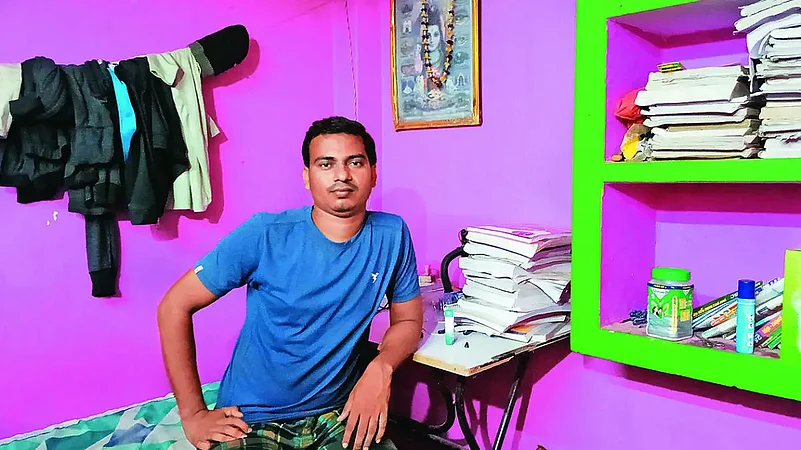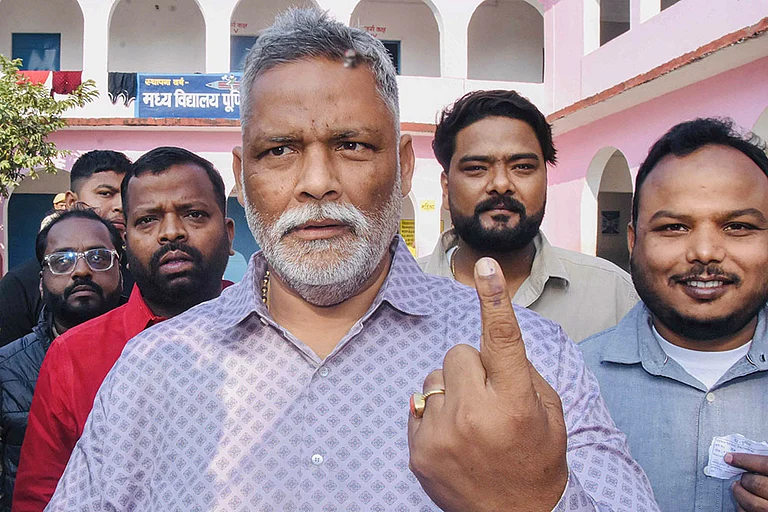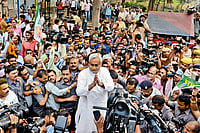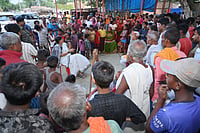“General physician wale hain (We are general physicians),” laughs 30-year- old Sintu Kumar when asked about the kind of jobs he is preparing for. He explains the ‘general physician’ term in detail. “Like general physicians treat all kinds of diseases, people appearing for the general competition exams vie for a raft of government jobs, all low grade. That’s what I’m preparing for.” Though the term is used sarcastically, it is very common among those who prepare for the exam.
Like Sintu, lakhs of youth living in Musallahpur Haat area in Patna are preparing for years to land government jobs. The passion that drives them for anywhere between 8-10 years of their lives has nothing to do with any interest in public service, but a desperation for a regular job.
It has been nine years since Sintu Kumar began preparing for general competitive exams. In these nine years, he has sat in over a dozen exams—for police inspector, SSC, railways, state secretariat, BPSC, etc.—but has so far failed to crack any.
Sintu lives in a tiny hovel in Musallahpur Haat, which he shares with another aspirant. He cooks himself. Life, he says, is very drab. “I get little time for entertainment. All I can do in my spare time is watch movies on my cellphone,” he adds, proudly displaying his cheap Chinese smartphone which he uses to take online classes on YouTube.
This year, he took an attempt at the post of inspector. He passed the physical examination and the written test, and was just a step away from landing the job. He had to clear the endurance running test and the job would be his.
He did not want to miss this golden opportunity at any cost. After all, how long would he spend preparing for jobs? Coming from a poor Chamaar (a SC caste) family, arranging the money was a tough ask. His father is a marginal farmer with around a bigha of land. His elder brother earns Rs 12,000 a month, working as construction labour. “My brother has his own family with wife and three kids, yet he sends me Rs 5,000 every month as expenses,” says Sintu.
He started running 5 km daily, under the guidance of a trainer, so that he could perform his best in the test. For this, Sintu has to shell out an additional Rs 5,000 as fees. While running in Patna, he could not get time to cook, which would have affected his preparation, so he returned to his home in Maheswa village of Madhepura district. “After a 10-km run, good food is essential. It was not available in Patna, so I had to go to the village,” he says.
“The test was scheduled for June 15. I didn’t want to fail at any cost, so I decided to practice running 10 km everyday for 20-25 days,” he says.
Sintu was not used to running, yet he ran 10 km daily. It soon took a toll on his health. After a week of running, his knee developed unbearable pain and he was forced to consult a doctor. The doctor prescribed a number of tests that revealed the knee had swollen due to excessive running.
Sintu was instructed to take rest with medicines, but he continued his practice. “I didn’t want to let go of this job, so I kept taking medicines, but also kept running. I ended up spending Rs. 50,000 on healthcare,” he says. His father dipped into his life’s savings and borrowed the rest.
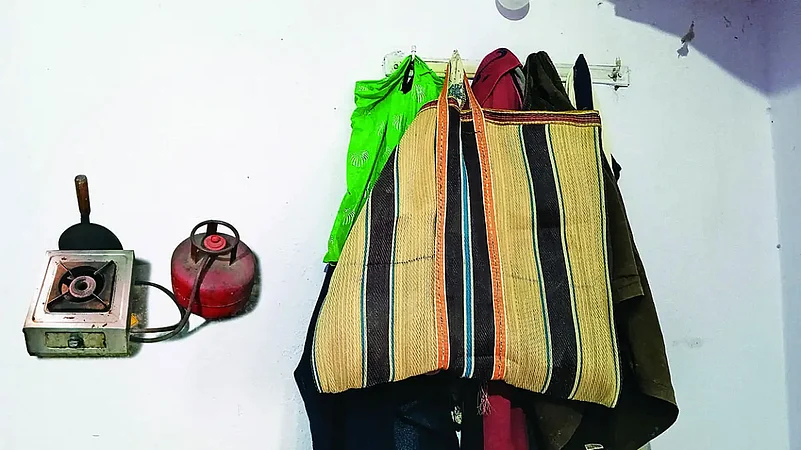
On June 15, he appeared for the running test brimming with enthusiasm, but fell short of the selection criteria by just a second. “In 2019, I got disqualified in the high jump at the recruitment for inspectors. This year, I cracked the high jump but failed in the run,” says Sintu.
I met him at his Patna stay on June 17, two days after running the test, in a small room that had no ventilation. A concrete rack along a wall was full of books for competitive exams. Sintu was visibly upset. During the conversation, he got a call on his cellphone, asking if he was fine. The caller also consoled him for falling short in the running test. With a melancholic smile on his face, Sintu spoke to him in his local dialect, “Theeke chhiye, mar nai geleo haan (I’m fine, I’m not yet dead).” The desperation to convey masculine stoicism was evident.
He says he has been getting such phone calls ever since he fell short in the test. “My entire family was eagerly waiting for the results, so soon after the run, they called me from the village and enquired. I told them I failed to qualify by a second. They all cried. They were so upset that no food was cooked in the house that day,” he says. “I’m unable to sleep out of frustration,” he adds.
Government jobs were not Sintu’s first priority. After clearing the intermediate exam, he had dreamed of becoming a doctor or engineer, but being poor, he knew he wouldn’t be able to fund the expensive tuitions he needed for that, so he settled for the next best option—preparing for a government job entrance exam.
Why does he seek a government job and not try out private sector employment? Pat comes the reply, “A government job brings immense respect in our society and also secures the future.” He mentions the Covid-19 pandemic as reason for his increased urge for a government job. “During Covid-19, we saw with our own eyes the difference between government and private jobs. You see, when Covid-19 came, there were huge layoffs in the private sector. People’s salaries were reduced, but those of government employees remained secure. They got their full salary while sitting at home. This is the big difference between a government job and a private job,” he says.
When families from rural areas send their children to the city to prepare for government jobs, the eyes of the entire village are on them. It leads to more social pressure on the aspirants. Sintu explains, “There’s no coaching centre at my village, nor is there a study environment. Moreover, in my village home, I’d have to run household chores, which would distract from my preparation. In Patna, there are many coaching centres, and living with aspirants is good for motivation.”
For a few years now, Sintu has stopped returning to the village. “When I go to the village, neighbours comment disparagingly about the number of years I have spent in trying to crack government job exams, hinting that I’m wasting time,” he says.
“If I inform my father that I have qualified in an examination, neighbours in the village tell him I’m lying just to make him happy,” he says.
Sintu’s focus is clear—any Group D government job. “They offer security with yearly increments. One can retire after around 30 years, but continue to enjoy pension, gratuity, etc.” Along with these, a government servant, even a clerk, is respected in society, he says, improving marriage prospects.
Actually, he adds, “In villages, boys get married by 25-27. I’m 30 now. I should have got married. Now, if I get a job I’ll get married easily. Otherwise it will be difficult.”
Despite adversity, Sintu will not give up. He says, “I’ll again appear for the inspector’s exam. As long as I am eligible to apply, I will try for a government job. Only when I’m too old to apply, will I try my hand at other avenues for survival.”
(This appeared in the print edition as "‘General Physician Wale Hain’")
Umesh Kumar Ray in Patna







